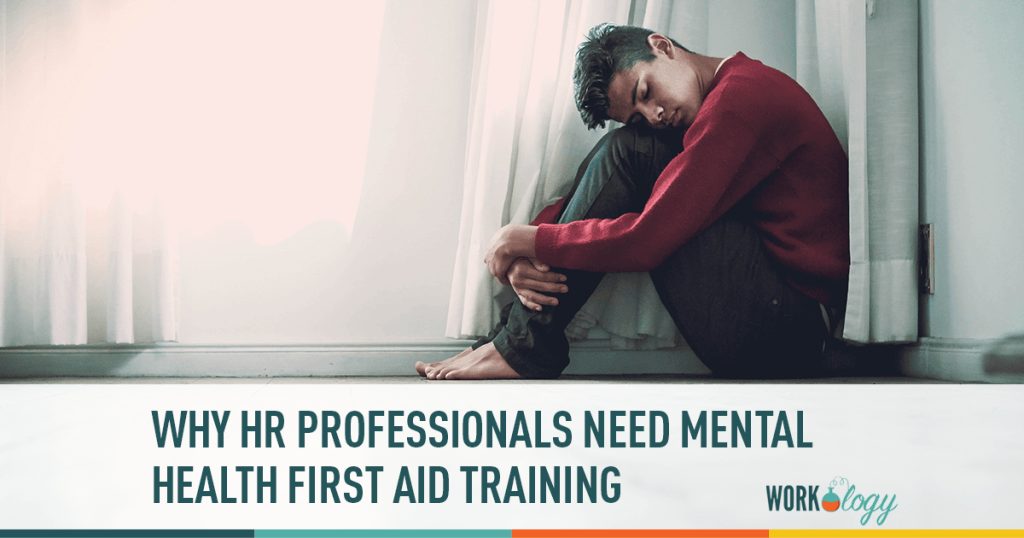Many human resources professionals are under-informed about mental health issues. HR professionals should be equipped with the knowledge and abilities essential to recognize and handle employees’ mental health illnesses early on as they are the first line of defense in resolving issues relating to their productivity and general well-being. Like me, you’ve probably encountered coworkers who needed assistance but who you weren’t sure how to approach.
Today, first aid supplies are typically easily available in offices for treating physical ailments. Many of us keep first aid supplies in our desks, briefcases, automobiles, and purses. Every few years, we enroll in CPR training to be ready to assist someone with a heart issue. Despite the fact that mental health issues are more prevalent in the US than heart, lung, and cancer disorders combined, we are woefully unable to recognize or assist someone who is suffering from a mental health condition.
Mental Health Improves Productivity
One in five (20%) adults are thought to experience a diagnosable mental condition each year. This is the same as 45.6 million individuals. The majority of those people are employed adults. Each year, this results in lost productivity costs of nearly $60 billion. Both a public health and commercial concern is mental health.
Let’s calculate the impact to the businesses with which we work as HR experts. How many employees in your workforce would be affected if 20% of the workforce was at risk of having a mental health issue at any given time? What might happen to the individual, their coworkers, the workforce, and the bottom line if those employees don’t seek treatment for their conditions?
Reducing Stigma Increases Treatment
HR can also improve mental health in the workplace by reducing the stigma associated with mental illness. Much of the stigma of mental illness is due to a lack of knowledge. While we wouldn’t think of referring to someone as “a cancer” or “a broken leg,” we often hear people referred to as “a manic depressive.” As with other cultural changes, HR can act as leaders in shifting the way people think about mental illness.
When stigma is eliminated, people are less afraid to seek treatment for their condition. Despite the current prevalence of mental illness, it’s estimated that only one-third of those afflicted receives treatment.
Mental Health First Aid Training
Over the past year, I’ve attended several educational courses dedicated to raising awareness of mental health issues and training people to identify and respond to mental disorders. All the courses I’ve attended are excellent programs designed to accomplish specific outcomes. For example, LivingWorks’ SafeTalk program focuses on suicide prevention. Another program, Emotional CPR (eCPR), trains people to assist others through an emotional crisis. Both programs are designed and facilitated by dedicated mental health professionals.
But I found the 8-hour Mental Health First Aid course to be most applicable to an HR practitioner’s role. Managed by the National Council for Behavioral Health, the course is focused on improving mental health knowledge and skills. It’s designed to teach lay people methods of assisting someone who may be in the early stage of developing a mental health problem or in a mental health crisis. The concept of the course is similar to CPR training. The trainee is not expected to respond as a physician, but rather as an early responder. The course teaches participants:
- The signs of addictions and mental illness;
- Impact of mental and substance use disorders;
- A 5-step action plan to assess a situation and help;
- Local resources and where to turn for help.
The program is designed for all people and organizations that make up a community — and a workplace certainly meets the definition of a community. People who interact regularly with a lot of people, such as police officers, HR professionals and health care workers, are encouraged to attend the program. I left the class feeling much more confident in my understanding of the importance of good mental health in the workplace.
Sources: Mental Health First Aid USA; National Alliance on Mental Illness








